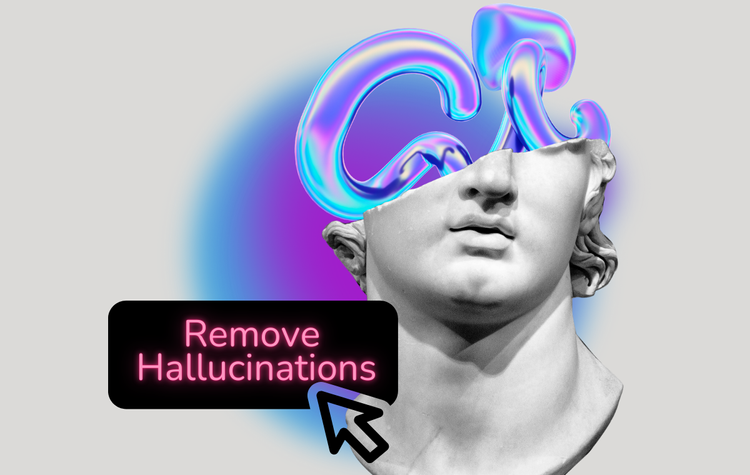How to Evaluate an Insurance Chatbot
Insurance chatbots can simplify the life of an insurance agent. Generative AI chatbots are outstanding at understanding complex insurance questions. Gleen AI stands out for its ability to not hallucinate (make things up).

Chatbots and generative AI making waves worldwide with their innovative capabilities and functions.
Digital transformations through chatbots have become widespread, particularly in the insurance industry where communication and customer service are of the utmost importance.
Studies show that 44% of people are okay with using an insurance chatbot for insurance claims. Similarly, 43% of them are comfortable using chatbots for insurance applications.
Insurance chatbots have the potential to accomplish diverse tasks at once and simplify the operations of insurance agents.
Let's discuss the key criteria for evaluation an insurance chatbot.
A good insurance chatbot should:
1. Ingest General Knowledge About Insurance
With insurance chatbots, you can dramatically improve the productivity of your live agents.
AI chatbots ingest knowledge from carrier websites, brochures, and PDFs of policies. This helps companies provide updated and accurate insurance information to customers.
Insurance chatbots can handle first-line questions about insurance, allowing human agents to focus on complex escalations.
Regular ingestion of carrier information ensures that insurance chatbots stay current with the most recent policy changes.
2. Detect and Respond in a Foreign Language
Good people skills and communication are game-changers for an insurance agent. Often, insurance agents are not able to respond because the customer speaks a different language.
Conversational AI chatbots and generative AI chatbots serve as reliable translators for customers who speak a different primary language. A good insurance chatbot is capable of detecting, understanding, and responding to customers in multiple foreign languages.
3. Understand Complex User Questions
Historically, chatbots relied on decision trees and keyword detection to answer user questions. The downside was that it limited them to respond only to a set of questions. These types of chatbots created extremely inflexible customer experiences, resulting in lower customer satisfaction.
Thanks to generative AI like Gleen AI, insurance chatbots are able to understand complex user questions effectively.
In fact, the ability to understand highly complicated, insurance-related questions is a key insurance chatbot use case.
4. Provide Highly Accurate and Relevant Responses
Relevance is crucial when dealing with insurance claims or enrolling users in a new insurance policy.
Insurance chatbots need to provide highly detailed, accurate and relevant responses to users.
Chatbots should only use information from the insurance company and don’t make up answers for customers.
5. Not Hallucinate
Health, life, and auto insurance is serious business. As such, your insurance chatbot to be extremely accurate with the information it providers customers.
Generative AI chatbots are excellent at understanding customers' questions. When responding, however, generative AI chatbots sometimes make up facts, or hallucinate.
No hallucination sets Gleen AI apart from the competition. We explicitly designed Gleen AI to not hallucinate. Gleen AI provides highly relevant context to each question, detects hallucination, and suppresses hallucination when detected.
For example, here's a video that shows Gleen AI and a custom GPT from Open AI trained on the same knowledge. The GPT hallucinates, but Gleen AI doesn't.
6. Always Provide a Disclaimer that it is not a Licensed Insurance Agent
Regardless of the insurance knowledge, an insurance chatbot and a licensed insurance agent are not the same thing.
Good insurance chatbots always provide a disclaimer to the customers that they’re not licensed insurance agents.
The disclaimer safeguards the insurance firm’s reputation if a customer believes the chatbot misled them.
7. Escalate to An Insurance Agent
Insurance chatbots can escalate customer conversations to a real-life insurance agent for more in-depth and personalized guidance.
During business hours, chatbots redirect users to an active insurance agent via live chat. If the conversation occurs after business hours, the chatbot should be able to escalate to an agent via email.
The AI chatbot should also be able to schedule a phone call or face-to-face appointment with an insurance agent.
8. Take an Application for Insurance
From generating leads to helping clients with application procedures, generative AI insurance chatbots make insurance operations seamless and quick.
Chatbots are invaluable in offering assistance to customers when filling out insurance documents and policies.
With AI chatbots, it is easier for customers to compare multiple insurance plans before finalizing the application.
9. Integrate with the CRM
Smooth integration of insurance chatbots with CRM enhances experiences for both the insurance agents and customers.
For logged in customers, the chatbots should respond in a personalized manner. Additionally, the chatbot should be able to answer questions regarding benefits, next premium payments, date of next premium payment, beneficiaries, etc.
Good insurance chatbots should also enable self-serve. Chatbots should be able to process address changes, add or remove beneficiaries, accept premium payments, and start policy cancellations.
10. Be Customizable
An insurance company or broker should be able to benefit from a large number of specialized insurance chatbots.
If your brokerage offers multiple lines of insurance, you should be able to create different chatbot for each line.
Separate insurance chatbots help narrow down the customer questions and offer tailored responses. They also better customer experiences after the customer has indicated the type of insurance they're interested in.
11. Protect Customer Privacy
Data privacy is an important and valid concern of customers and insurance companies alike. Insurance chatbots make sure that all the information users put into the chat window remains confidential and safe.
Leading insurance chatbots like Gleen AI protect customer data and privacy with SOC 2 Type 2 compliance.
Gleen AI: Exceeding the Expectations of an Insurance Chatbot
Top-notch customer service is essential for every insurance firm and Gleen AI’s insurance chatbot excels in that.
You can rely on Gleen AI to transform your insurance company, by offering:
- The ability to understand highly complex, insurance related questions
- No hallucination
- Highly relevant answers to insurance related questions
- Multilingual communications
- High customizability
- Even higher data privacy and security
Ready to upgrade your insurance expertise?
Request a demo of Gleen AI or create your own free generative AI chatbot now.



